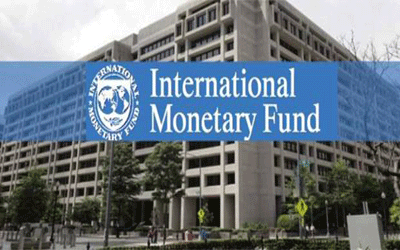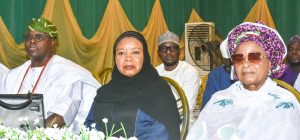
By Omodele Adigun
The International Monetary Fund (IMF) has updated Nigeria’s economic growth outlook upward, projecting Nigeria’s Gross Domestic Product (GDP) to grow by 3.9 per cent in 2025, a 0.5 percentage points increase over the earlier forecast.
The IMF, citing stronger investor confidence, improved oil production, and a more stable macroeconomic environment, also upgraded the 2026 growth projection to 4.2 per cent, up by 0.9 percentage points, while the 2024 growth estimate had been adjusted to 4.1 per cent, 0.7 percentage points higher than previously estimated.
The Chief of the IMF Research Department, Deniz Igan, disclosed at a news conference to unveil the Global Financial Stability Report in Washington, stating the upward adjustment for 2024 reflected Nigeria’s recent GDP rebasing, which offers broader coverage of the economy, including previously underrepresented informal sector activities.
According to her, the 2025 and 2026 outlook reflects reduced uncertainty and the limited impact of U.S. tariffs on Nigeria, given its relatively low exposure to those markets.
Igan said that the IMF attributed a brighter outlook to several key factors, including the appreciation of the exchange rate since July, rising investor confidence, a supportive fiscal stance, and higher oil production amid improved security conditions.
“These developments have contributed to stronger hydrocarbon growth and overall economic resilience,” she said.
According to her, the revised projections signal renewed optimism for Africa’s largest economy as it continues to carry out reforms to stabilise the macroeconomic environment, attracting investments, and diversifying its revenue base.
“For Sub-Saharan Africa, we have upgraded growth projections. Growth for 2025 has been revised up by 0.2 percentage points, and the same applies to 2026. We now project 4.1 per cent growth this year and 4.4 per cent next year,” Igan said.
She said that the resilience across the region had been supported by macroeconomic stabilisation measures and ongoing reform efforts in several key economies notably Ethiopia and Nigeria.
Igan, however, said that vulnerabilities remained, saying“Resource-dependent and conflict-affected countries continue to face significant headwinds, and our medium-term outlook indicates that low-income economies in the region are still grappling with a widening per capita income gap compared to advanced economies.
“In such an environment, it is crucial for countries to strengthen institutions, deepen structural reforms, and mobilise domestic revenue through effective tax reforms.
“Additionally, improving debt management, transparency, and governance, alongside broader structural reforms, will be key to unlocking the region’s economic potential,” she said.




iwin – nền tảng game bài đổi thưởng uy tín, nơi bạn có thể thử vận may và tận hưởng nhiều tựa game hấp
Đến với J88, bạn sẽ được trải nghiệm dịch vụ cá cược chuyên nghiệp cùng hàng ngàn sự kiện khuyến mãi độc quyền.
Khám phá thế giới giải trí trực tuyến đỉnh cao tại MM88, nơi mang đến những trải nghiệm cá cược thể thao và casino sống động.
Đến với J88, bạn sẽ được trải nghiệm dịch vụ cá cược chuyên nghiệp cùng hàng ngàn sự kiện khuyến mãi độc quyền.
iwin – nền tảng game bài đổi thưởng uy tín, nơi bạn có thể thử vận may và tận hưởng nhiều tựa game hấp
专业构建与管理谷歌站群网络,助力品牌实现全域流量的强势增长。谷歌站群
Khám phá thế giới giải trí trực tuyến đỉnh cao tại MM88, nơi mang đến những trải nghiệm cá cược thể thao và casino sống động.
Đến với J88, bạn sẽ được trải nghiệm dịch vụ cá cược chuyên nghiệp cùng hàng ngàn sự kiện khuyến mãi độc quyền.
iwin – nền tảng game bài đổi thưởng uy tín, nơi bạn có thể thử vận may và tận hưởng nhiều tựa game hấp
Khám phá thế giới giải trí trực tuyến đỉnh cao tại MM88, nơi mang đến những trải nghiệm cá cược thể thao và casino sống động.